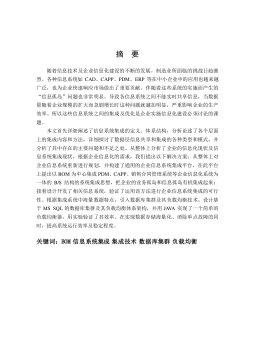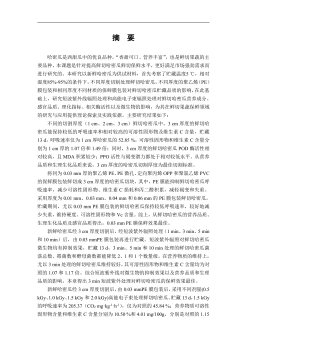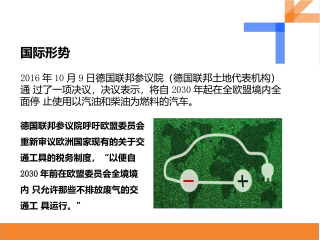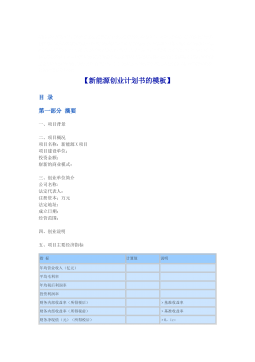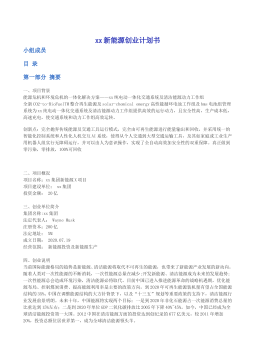成人英语基础教学研究——双C结合法的应用
VIP免费
摘要
英语是世界上使用最普遍的一种语言。在我国,除了在校学生,各行各业的
许多成年人也为了生活和工作的需要,开始学习英语。
然而,无论在生理、心理还是认知上,成年人与青少年都存在很大差异。成人
基础英语教育的现状是,大部分任课教师是兼职教师,此外,没有一个系统的适
合成人学习特点的教学方法。为了改变这一现状,成人英语教学,尤其是基础阶
段需要专门研究。这一领域的研究已开始引起教师和学者的重视。本文作者认为在
教学过程中采用自觉对比教学法和交际教学法相结合的方法可以帮助成年人更好
地学习英语。她依托诸多教师和学者所取得的成就,分析了成人学习者的特点以
及自觉对比教学法和交际教学法各自的优缺点,并尝试在英语课上实施这两种教
学法相结合(下文中称为双 C 结合法)的方法,以提高英语课教学质量,进而实
现成人英语的教学目标。
来自上海自立进修学校的 62 名学员参与了此次实验。他们分为实验班和控制
班,每个班各 31 名学员。两个班采用同一本教材,由本文作者分别执教。在本研
究初两个班参加了同一预测,以确保两个班的英语水平没有显著差别。控制班运
用自觉对比法,实验班运用双 C 结合法进行教学。作者从课本中选取一个单元
(第 12 单元)作为样课,样课结束后对两个班进行问卷调查,收集学员对这两种
教学方法的反馈。历经近四个月的教学后,两个班的学员又参加了同一考试和第
二份问卷调查。所得数据用 SPSS 软件进行统计分析。学生调查问卷的反馈和测试
数据的分析证明了,实验班的成人学生比控制班的学生英语掌握情况要好。在学
期结束时对他们进行的测试中,实验班的及格率比控制班的高 12.9%;实验班总
分的平均分也比控制班的高 6.16;两个班在大部分题目以及总分上都存在着统计
上的显著差别。 因此,在成人基础英语教育中可以尝试采用自觉对比与交际相结
合的方法。
最后,作者从实际教学的角度提出了开展双 C 结合法的一些具体建议。虽然
作者精心设计并实施这项研究,但还不够完善。文本权当抛砖引玉,希望可以为
切实提高成人英语水平出一份力。
关键词:成人英语教学 自觉对比教学法 交际法 双 C 结合法
ABSTRACT
English is the most widespread language in the world. In China, not only the
students in schools and colleges take it as a compulsory subject, but adults from all
walks of life begin to learn English in order to meet the needs of life and work.
However, adults are greatly different from adolescents in school and students in
college in terms of physiology, psychology and cognition. As a matter of fact, the
current situation of adult English teaching at the beginners’ level is that most teachers
are part-time teachers and there is not a teaching method which suits for the
characteristics of adult learners very well. In order to change the situation, specialized
research need to be conducted in the field of adult English learning, at the beginners’
level especially. An increasing number of teachers and scholars have begun to pay
attention to exploring a suitable teaching approach. The author of the present thesis
thinks that Double C Method (hereinafter called DCM), i.e. the integration of Conscious
Comparative Approach and Communicative Approach in the teaching procedure, can
help adults learn English better. Referring to the findings by teachers and scholars, the
author analyzes the characteristics of adult learners and the merits and demerits of
Conscious Comparative Approach and Communicative Approach. On this basis, she
attempts to implement DCM for the purpose of improving the teaching quality of
English course for adults and realizing the objectives of adult English teaching.
62 subjects from Shanghai Zili Institute took part in this experiment, half in the
experimental class and half in the control class. They used the same textbook and were
taught by the same teacher, i.e. the author. Both of these classes underwent an identical
pre-test at the very beginning of the research to ensure that there was no statistically
significant difference concerning their prior English proficiency. In the control class
Conscious Comparative Approach was adopted while in the experimental class DCM
was adopted. The author chose one unit (Unit 12) from the textbook as a model class,
after the implementation of which a questionnaire was handed out to the two classes to
gather their reflections on these two teaching methods. After almost four months’
teaching, students of these two classes had an identical post-test and another
questionnaire was handed out. Their test performances and other information were
gathered and analyzed by use of SPSS. The feedback of questionnaires and data analysis
of the tests proved that adult learners in the experimental class master English better
than those in the control class. In the post-test, the pass rate of experimental class is
about 12.9 percent higher than that of the control class. As for the total marks, the
average score of the experimental class is about 6.16 points higher than that of the
control class. There is statistically significant difference between the two classes of
students on most sections as well as the total score (significant at the 0.05 level).
Thus, DCM should be adopted in adults’ English classes at the beginners’ level.
At the end of the thesis, the author puts forward some suggestions on the
implementation of DCM from the angle of classroom teaching. Though the author has
made great efforts to devise and carry out this study, it is far from perfect. This study,
therefore, serves as an invitation to further research so that the ultimate goal of
improving adults’ English level can be achieved.
Key Words: adult English teaching, Conscious Comparative Approach,
Communicative Approach, Double C Method
Contents
Acknowledgements
中文摘要
ABSTRACT
List of Acronyms
List of Tables and Figures
Chapter One Introduction…………………………………………………………...1
1.1 Status Quo of Adult English Teaching in China……………………………...1
1.2 Significance of the Study……………………………………………………..2
1.3 Configuration of the Study……………………………………………...........3
Chapter Two Literature Review…………………………………………………….5
2.1 Features of Adult Learners…………………………………………………...5
2.1.1 Physiological Aspect………...………………………………………..........6
2.1.2 Psychological Aspect…………...………………………………………….7
2.1.3 Cognitive Aspect………………...…………………………………………9
2.1.4 Summary……….…………………………………………………………..9
2.2 Exploration into Teaching Methods………………………………………...10
2.2.1 Conscious Comparative Approach………………………………………..11
2.2.2 Communicative Approach…………...…………………………………...18
2.2.3 The Feasibility of Combination…………...………………………….......24
Chapter Three Application of DCM…………………………………...................27
3.1 Research Design…………………………………………………………...27
3.1.1 Participants……………………………………………………………27
3.1.2 Instruments……………………………………………………………27
3.1.3 Procedure……………………………………………………………...27
3.2 Research Implementation………………………………………………….28
3.2.1 The Application of CCA in the Control Class………………………...28
3.2.2 The Application of DCM in the Experimental Class………………….31
3.3 Data Collection…………………………………………………………….33
3.3.1 Questionnaires………………………………………………………...33
3.3.2 Tests…………………………………………………………………...34
Chapter Four Results and Discussion……………………………………………...37
4.1 Survey Results…………………………………………………………......37
4.1.1 Survey 1…………………………………………………………………37
4.1.2 Survey 2……………………………………………………………........39
4.2 Test Result……………………………………………………………….......43
4.2.1 Pre-test………………………………………………………………......43
4.2.2 Post-test…………………………………………………………………45
4.3 Discussion……………………………………………………………………49
4.3.1 Success-conductive Factors……………………………………………..49
4.3.2 Potential Problems………………………………………………………51
Chapter Five Conclusion……………………………………………………………...53
Bibliography…………………………………………………………………………57
Appendices………………………………………………………………………......61
Appendix I The Content of Unit 12…………………………………………….61
Appendix II Questionnaire1…………………………………………………65
Appendix III Questionnaire 2……………………………………………….66
Appendix IV Pre-test…………………………………………………………….67
Appendix V Post-test…………………………………………………………..72
Appendix VI Students’ Raw Scores of the Pre-test………………………………
77
Appendix VII Students’ Raw Scores of the Post-test…………………………......80
Published Papers……………………………………………………………………..83
List of Acronyms
CA Communicative Approach
CCA Conscious Comparative Approach
DCM Double C Method
df degree of freedom
EFL English as a Foreign Language
ELT English Language Teaching
ESL English as a Second Language
FL Foreign Language
L1 First Language
L2 Second Language
NL Native Language
PETS Public English Test System
SD Standard Deviation
Sig. Significant
TESOL Teaching English to Speakers of Other Language
List of Tables and Figures
Table 2.1 Summary of Lindeman’s Key Assumptions about Adult Learners……….10
Table 3.1 Outline of Text A…………………………………………………………30
Table 3.2 Layout of the Pre-test……………………………………………………..34
Table 3.3 Layout of the Post-test……………………………………………………35
Table 4.1 Results of the First Questionnaire-Part I………………………………….37
Table 4.2 Results of the First Questionnaire-Part II………………………………...38
Table 4.3 Results of the First Questionnaire-Part III………………………………..38
Table 4.4 Results of the First Questionnaire-Part IV………………………………..39
Table 4.5 Results of the Second Questionnaire-Part I………………………………40
Table 4.6 Results of the Second Questionnaire-Part II……………………………...40
Table 4.7 Results of the Second Questionnaire-Part III…………………………….41
Table 4.8 Results of the Second Questionnaire-Part IV…………………………….41
Table 4.9 Results of the Second Questionnaire-Part V……………………………...42
Table 4.10 Results of the Second Questionnaire-Part VI…………………………….42
Table 4.11 Reliability Estimates of the Pre-test………………………………………43
Table 4.12 Descriptive Statistics of the Pre-test for the Experimental Class………...44
Table 4.13 Descriptive Statistics of the Pre-test for the Control Class……………….44
Table 4.14 Results of the t Test of the Pre-test……………………………………….45
Table 4.15 Reliability Estimates of the Post-test……………………………………..46
Table 4.16 Descriptive Statistics of the Post-test for the Experimental Class………..46
Table 4.17 Descriptive Statistics of the Post-test for the Control Class……………...47
Table 4.18 Score Distribution………………………………………………………...47
Table 4.19 Results of the t Test of the Post-test………………………………………48
Figure 4.1 Score Distribution on the Post-test of Two Classes………………………48
摘要:
展开>>
收起<<
摘要英语是世界上使用最普遍的一种语言。在我国,除了在校学生,各行各业的许多成年人也为了生活和工作的需要,开始学习英语。然而,无论在生理、心理还是认知上,成年人与青少年都存在很大差异。成人基础英语教育的现状是,大部分任课教师是兼职教师,此外,没有一个系统的适合成人学习特点的教学方法。为了改变这一现状,成人英语教学,尤其是基础阶段需要专门研究。这一领域的研究已开始引起教师和学者的重视。本文作者认为在教学过程中采用自觉对比教学法和交际教学法相结合的方法可以帮助成年人更好地学习英语。她依托诸多教师和学者所取得的成就,分析了成人学习者的特点以及自觉对比教学法和交际教学法各自的优缺点,并尝试在英语课上实施...
相关推荐
-
新能源项目融资计划VIP免费
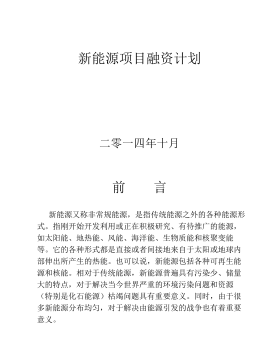
 2024-12-31 12
2024-12-31 12 -
新能源汽车运营服务公司商业计划书VIP免费
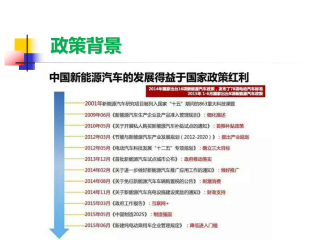
 2024-12-31 8
2024-12-31 8 -
上海xxx新能源股份有限公司商业计划书VIP免费

 2024-12-31 47
2024-12-31 47 -
绿特新能源商业计划书VIP免费
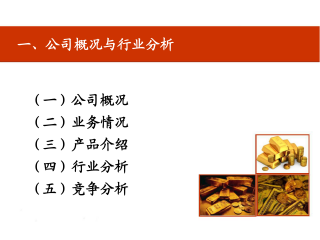
 2024-12-31 10
2024-12-31 10 -
关于新能源充电项目创业计划VIP免费
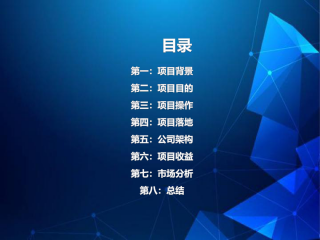
 2024-12-31 13
2024-12-31 13 -
太阳能充电器创业计划书模板VIP免费
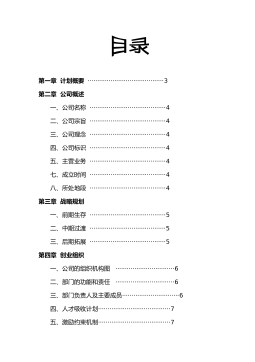
 2025-01-09 7
2025-01-09 7 -
中国新能源及节能环保材料项目商业计划书VIP免费
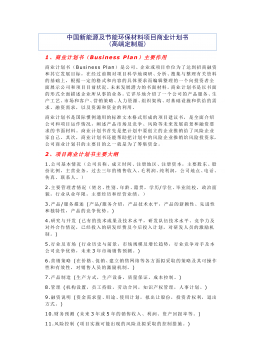
 2025-01-09 5
2025-01-09 5 -
中国(陕西)xxxx新能源股份有限公司VIP免费
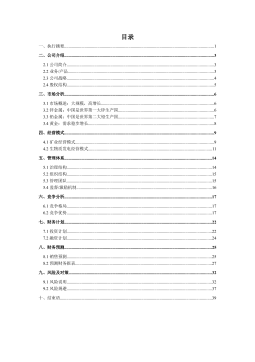
 2025-01-09 5
2025-01-09 5 -
阳光新能源公司创业计划书VIP免费
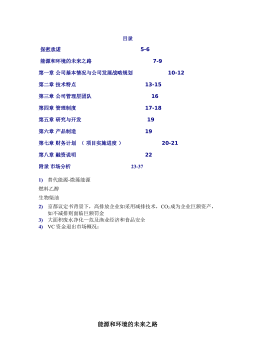
 2025-01-09 5
2025-01-09 5 -
新型纯电动安全汽车项目商业计划书VIP免费
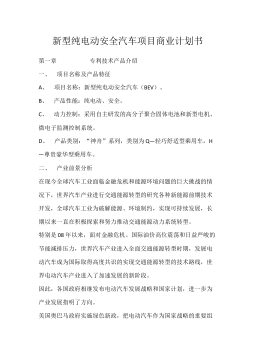
 2025-01-09 7
2025-01-09 7
作者:陈辉
分类:高等教育资料
价格:15积分
属性:71 页
大小:862.17KB
格式:DOC
时间:2024-11-19


